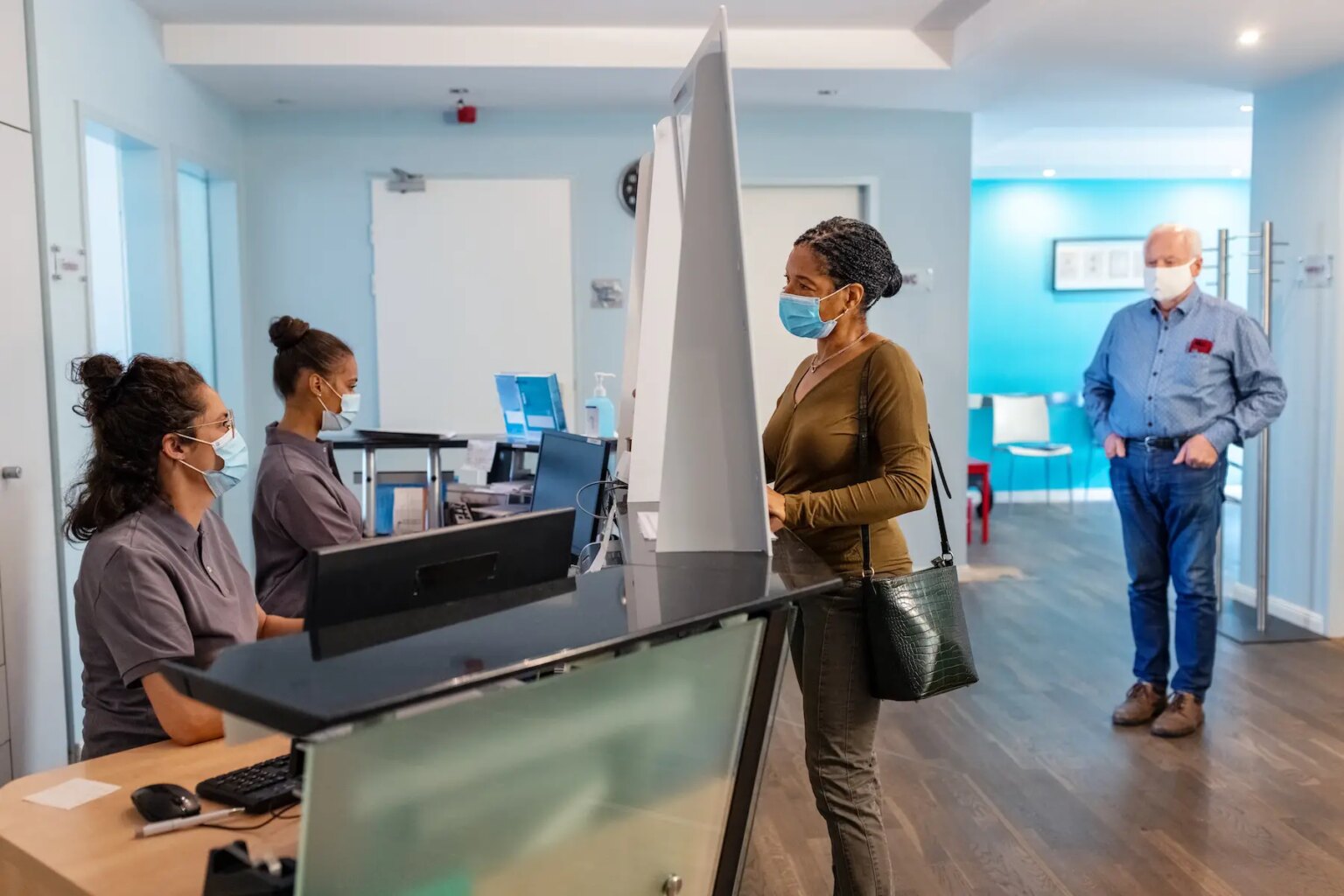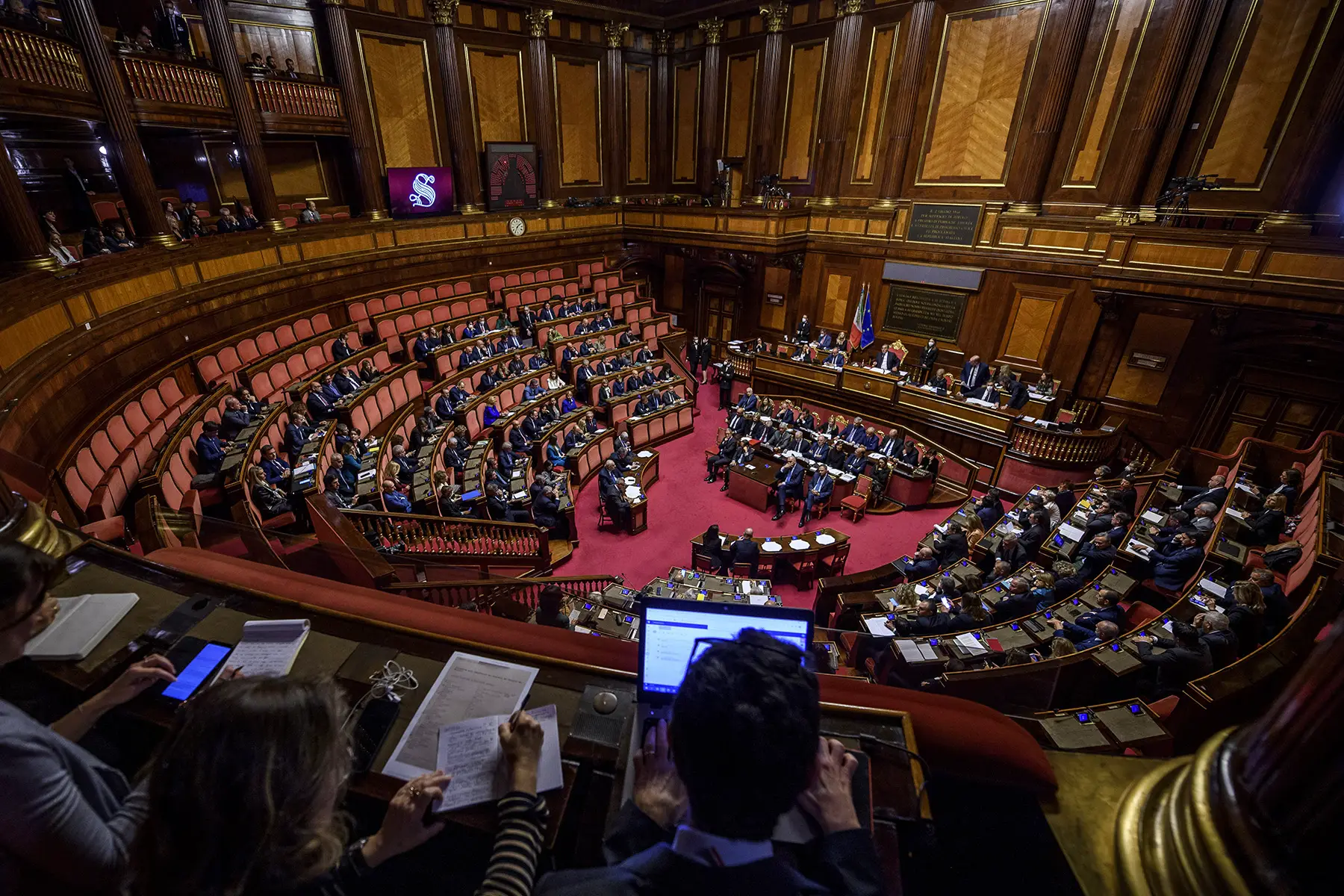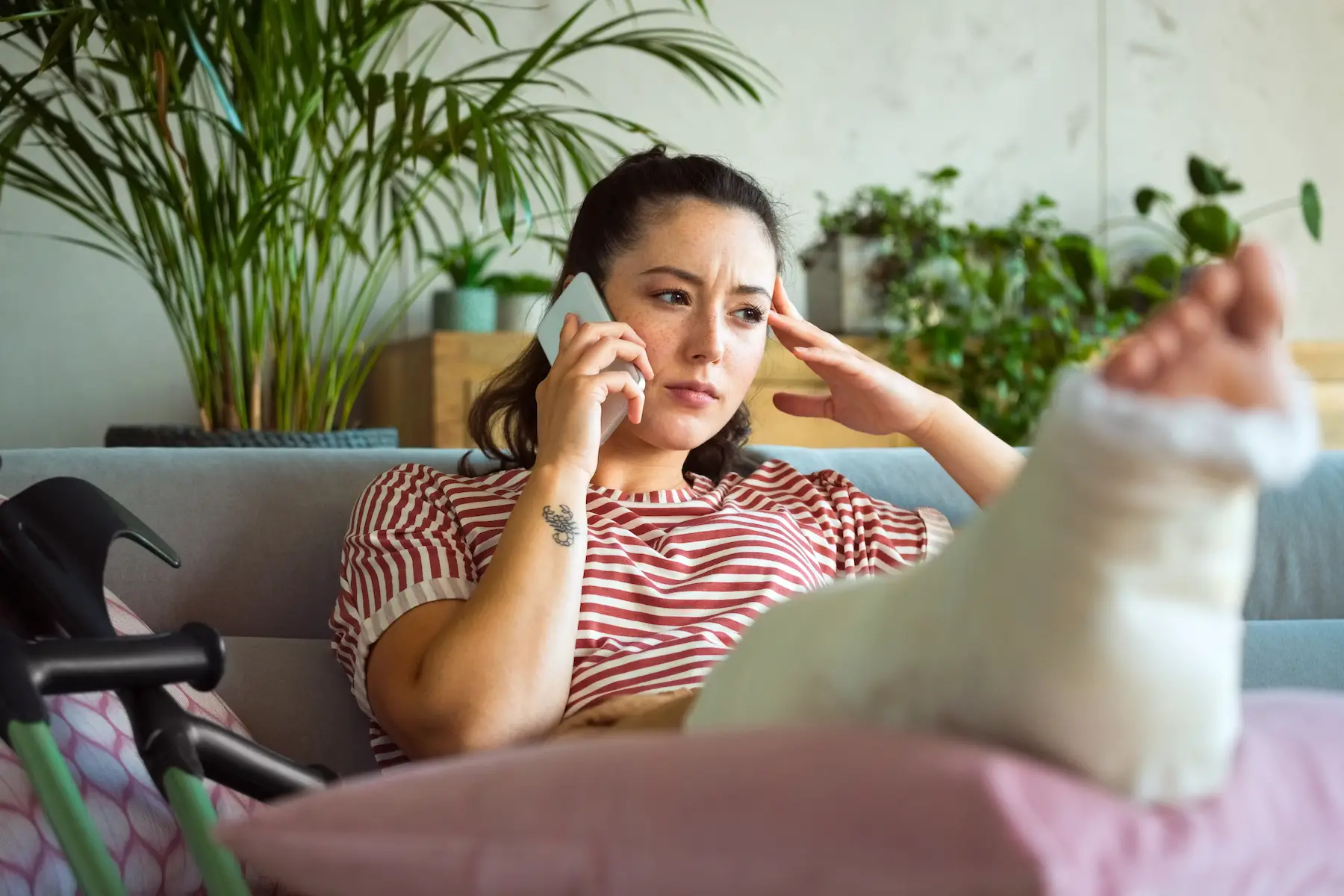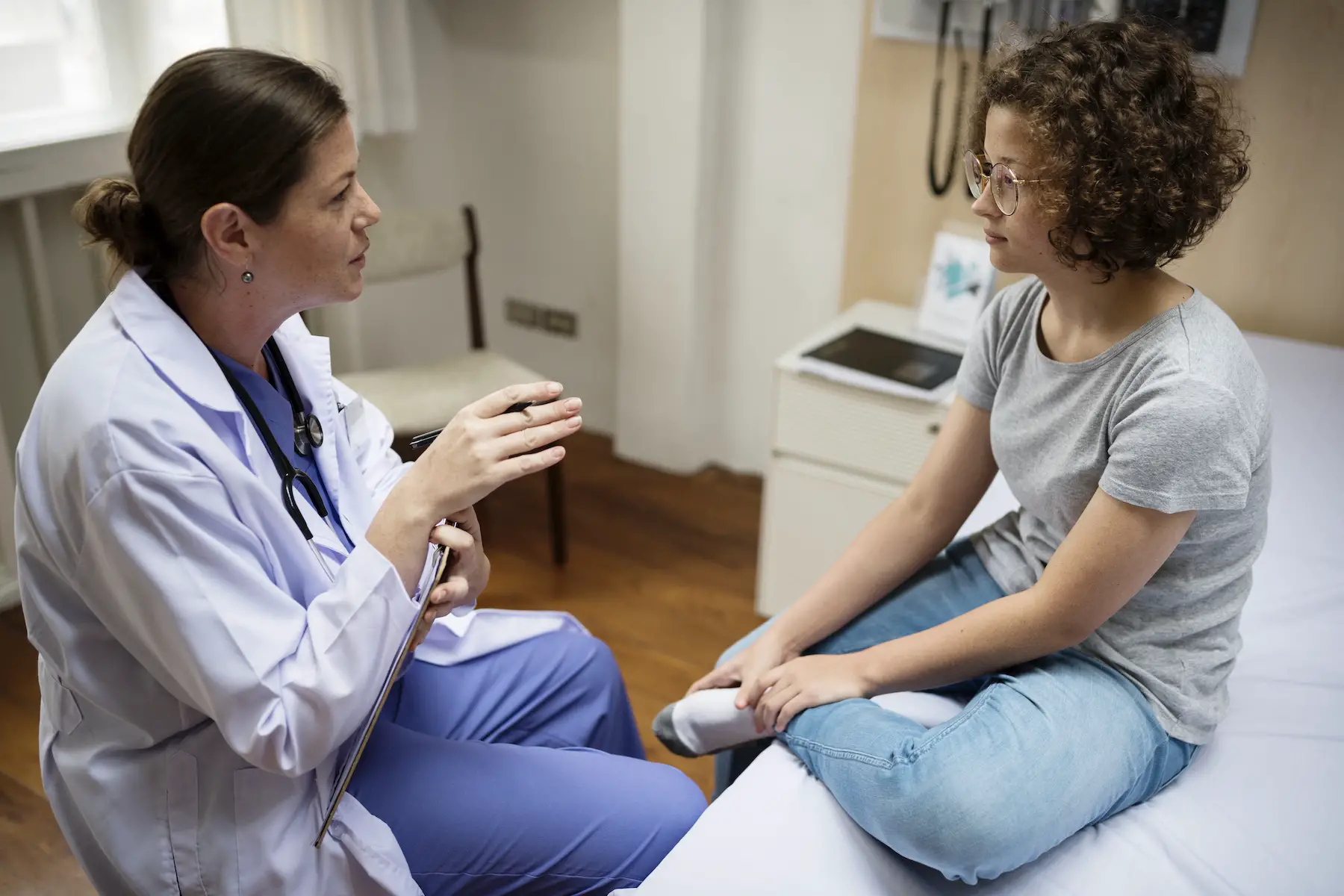Italy is one of five Blue Zones in the world, where life expectancy is exceptionally long. Naturally, you would assume that there’s something in the water (or wine) that gives Italians their elongated lifespan. Perhaps the old gods still favor the Romans, or life in Italy is really that good.
Whatever the case, if you need medical care, you don’t ask yourself these questions. Instead, you’ll want to know how the healthcare system works and – most importantly – what it’ll cost.
Here’s what you need to know:
Cigna Global
Enjoy peace of mind while living in Italy with Cigna Global’s long-term international health insurance plans (12+ months). Get tailored coverage, direct billing with many providers, complex case management, and global care on demand, with access to a network of 1.5+ million doctors, specialists, and therapists.
How does healthcare work in Italy?
Public vs private healthcare
Italy’s healthcare system comprises the public National Health Service (Servizio Sanitario Nazionale – SSN) and a network of accredited private healthcare providers.
While the SSN offers universal coverage to citizens and registered foreign residents, expats who aren’t eligible – or cannot afford – public healthcare in Italy may find that private health insurance is a better option for them.

Is Italian healthcare good?
In the last few decades, Italy’s healthcare system has built up a great reputation.
The country ranked second-best in the world on the WHO 2000 World’s Best Health Systems index (after France), and it’s still riding on those coattails. Meanwhile, more recent reviews are mixed. The Legatum Prosperity Index ranks Italy as the 17th best in the world (2023), whereas the 2022 World Index of Healthcare Innovation slams the country for performing “mediocre-to-poorly across the board.”
This bad score is likely because the public healthcare system is decentralized, meaning it operates on a local basis through Regional Health Services (Servizio Sanitario Regionale – SSR). The quality of care varies significantly across regions. Some areas offer advanced and efficient medical care, whereas others are understaffed and underdeveloped.
Despite this, only 1.8% of the population has unmet medical needs (EC 2023 country health profile).
Who administers healthcare in Italy?
The central government – more specifically, the Ministry of Health (Ministero della Salute) – coordinates public healthcare. It allocates tax revenue, defines the guaranteed benefits package (Livelli Essenziali di Assistenza – LEA), supervises regional compliance, and exercises overall responsibility.
Regions are responsible for the organization, planning, and delivery of health services in their area. Meanwhile, primary care physicians (GPs – medici di base) act as gatekeepers to specialist and hospital care.
How is Italian healthcare funded?
Italy’s public system is tax-funded, with 20% of its tax revenue going toward healthcare. While all residents must have health insurance, public health insurance is only mandatory for parts of the population. Others must register voluntarily or take out private insurance.
Residents who elect to sign up for public care must pay a – pretty hefty – annual fee, depending on their income. In 2024, the government raised this fee to a minimum of €2,000 a year. That means people pay at least €2,000, if not more.

Aside from health insurance payments, most Italian patients pay a small amount for certain medical services. Essential treatments, such as doctor visits, emergency care, vaccinations, and the like, are free of charge. However, prescription medication, lab work, and some specialist treatments require the payment of so-called health tickets (ticket sanitari).
Depending on your situation, you may be exempted from out-of-pocket costs. The following are not required to make co-payments:
- Citizens under the age of 6 and over the age of 65, if their total household income is less than €36,151.98 per year
- Unemployed workers and adults over 60 if their annual household income is less than €8,263.31. The income threshold is raised:
- to a total of €11,362.05 if there is a dependent spouse
- by €516.46 for each dependent child
- Social pensioners and their dependent family members
- Patients with certain chronic or disabling diseases and rare illnesses
- Pregnant women – NB: exception only applies to certain procedures
- Patients of social interest (e.g., organ donors or unaccompanied foreign minors)
Of course, you can only get exempted from paying health tickets when certified by a doctor.
Who can access healthcare in Italy?
Like many countries, Italy has mandatory health insurance. Indeed, access to healthcare is considered a fundamental right, and everyone can access medical care to some degree or another.
Notably, asylum seekers, refugees, and those without legal residence are also guaranteed access to essential healthcare.
Can foreigners apply for public healthcare?
The SSN is mandatory for all Italian citizens and most foreign workers in Italy. Regulations become more muddled when you’re an expat without an Italian work contract.

Health Insurance Expert, Cigna
Michael Condron
Insider Tip: Healthcare Access
You cannot access SSN healthcare services in Italy until you have resident status and an Italian Health Insurance Card (Tessera Sanitaria). Also keep in mind that the SSN may have language barriers and long wait times for treatment.
Our article on health insurance in Italy details the topic more extensively, but as a quick summary:
- Foreign workers must register for public insurance when they have regular (self)employment with an Italian employer. Freelancers and employees of international companies may voluntarily get public insurance.
- Job seekers with a valid residence permit can elect to register for public health insurance. If you are involuntarily unemployed, you may enroll at the Italian Employment Center and must register for the SSN.
- International students can voluntarily apply for public insurance.
- Foreign pensioners without Italian family and with a valid residence permit may voluntarily take out public insurance. If you are the dependent family member of an Italian citizen, you are mandated to register.
- Asylum seekers and refugees must sign up for public healthcare.

Healthcare when you first move to Italy
During the first three months of their stay, expats from the EU/EFTA (European Free Trade Association – Iceland, Liechtenstein, Norway, and Switzerland) and the UK can access healthcare with their European Health Insurance Card (EHIC) or Global Health Insurance Card (GHIC).
After that, you can transfer your medical rights from your home country to Italy using an S1 form. Alternatively, you can elect to sign up for either public or private insurance – or both.
Non-EU/EFTA citizens must take out private insurance as part of their visa application. Once you have a residence permit, you can voluntarily register for public healthcare or continue to use your private insurance.
For assistance with administrative procedures, it’s worth contacting experts such as those at Moving2Italy, who can advise you on what you need for your visa application and permits.
Moving2Italy
When relocating to Italy, get expert help from Moving2Italy on taxes, work permits, and setting up a business. They also provide personalized support for immigration, social security, and residence, helping you navigate your new life abroad. For assistance with fiscal and immigration matters, contact Moving2Italy.
Overview of private care in Italy
Do I need private healthcare in Italy?
The government pays for essential care, but the patient sometimes faces copayments. Likewise, if you’re using medical services outside of the necessary treatment package, you’ll pay out-of-pocket.
That is where private health insurance comes in. Private insurers offer additional coverage and a wider choice among healthcare providers. Some even cover copayments and compensation during hospitalization.
Of course, private health insurance is also essential for expats who aren’t eligible for – or can’t afford – public healthcare.

Why should I get private healthcare?
There are many benefits to private healthcare in Italy. For one thing, the private sector covers treatments that are excluded from the essential health benefits package. If you’re an adult needing dental care, for example, it’s not covered by public insurance.
Aside from that, other benefits of private health insurance include:
- No copayments
- Shorter waiting times
- Direct access to specialists
- Compensation during hospitalization
- Wider range of (English-speaking) providers
- Higher levels of comfort in hospitals and health clinics
- More cost-effective for high-earning foreigners
Private healthcare providers in Italy
Private and international health insurers offering coverage in Italy include:
You can read more about health insurance and private insurers in our dedicated country article.
How to register for Italian healthcare
Before moving to Italy, your first step is to contact your country’s public healthcare authority. They will be able to advise you on your specific situation and your rights to access public healthcare. They can also fill out the S1 form, should you need it.

Once you’ve arrived in Italy, you’ll need to decide which option to go for – public or private (or both!).
If you decide to go public, you’ll need a (provisional) tax code to register. You can get one from the Immigration Desk or Police Headquarters when you apply for a residence card or register your move to Italy.
With that bit done, you can schedule an appointment with your local ASL to register for the SSN and a primary care physician. You’ll receive your health card (Tessera Sanitaria) by mail within about a week. This card contains important information about you as a patient, and you’ll need to take it with you to all medical appointments in order to access free healthcare.
If you decide to take the private route, you can contact your preferred insurer directly. They will be more than happy to walk you through the registration process. Beware of pushy salespeople, though! You might walk away with a completely different policy plan than you had in mind.
Overview of primary healthcare in Italy
Healthcare professionals
Doctors and specialists
Family or general doctors provide the first line of medical defense. They work either alone or in group practices. You are free to choose whichever doctor you prefer, but if you are registered with the SSN, you can only switch once a year.
The GP conducts “light” tests, refers you to other specialists and treatment centers, holds and maintains your medical records, and coordinates follow-up treatments. Medical specialists typically work in hospitals and care centers.
In 2022, Italy had 34.3 specialists and 8 GPs per 10,000 residents, which is on par with other EU member states. There were also an estimated 65.2 nurses per 10,000 inhabitants, which is approximately one-quarter below the EU average.
Dentists
Public health insurance only covers oral treatments and dental care in the case of children under 14 and vulnerable patients (e.g., those awaiting donor transplants). There are some allowances for socially vulnerable patients (i.e., those who live close to or below the poverty line). Dentist procedures for regular adults require payment out-of-pocket or private coverage.
Residents are free to go to any dentist they like. In 2021, Italy had over 50,000 registered dentists to choose from.
Italian healthcare facilities
Health centers and clinics
There are many healthcare centers (centro medico) across Italy. They are typically open from 08:00 to 20:00. For out-of-hours, non-emergency care, you can visit a healthcare assistance continuity center (Servizio di continuità assistenziale).

Exams at public medical centers are free, though you may be required to pay a small fee for diagnostic tests and lab work. Italy also has specialist health clinics that provide mental health or sexual health services. However, without a referral from a GP, you’ll require private health coverage or have to foot the bill yourself.
You can find out more information about and search for services in your area online.
Hospitals
There are two types of Italian hospitals (ospedale): state-run istituti di cura pubblici and privately run casa di cura privata accreditata. Both are often government-approved, and your doctor can refer you to either one.
If you need immediate medical assistance, go to the nearest emergency room (pronto soccorso). You can also call 118 or 112, which is the free pan-European number for any type of emergency.
In 2021, there were over 1,050 hospitals in total (568 public and 483 private). Patient admissions in Italy are low compared to the vast majority of other EU countries. This is due to the availability and effectiveness of outpatient care services.
Italian healthcare covers all essential hospital care. However, if you want to enjoy your hospital stay, you’re out of luck. Private insurers, on the other hand, offer direct access to specialists, additional coverage, and higher levels of comfort and privacy during in-patient treatment. Some insurance companies even provide compensation in case the breadwinner is hospitalized.
Discover more about hospital stays and treatments in our article on hospitals in Italy.
Pharmacies
There are 20,000 pharmacies (farmacia; source in Italian) located across Italy, so you won’t have any trouble finding one. Around 1,800 of these are open every night (2024).
You can recognize pharmacies by the large green cross on the sign outside the store.
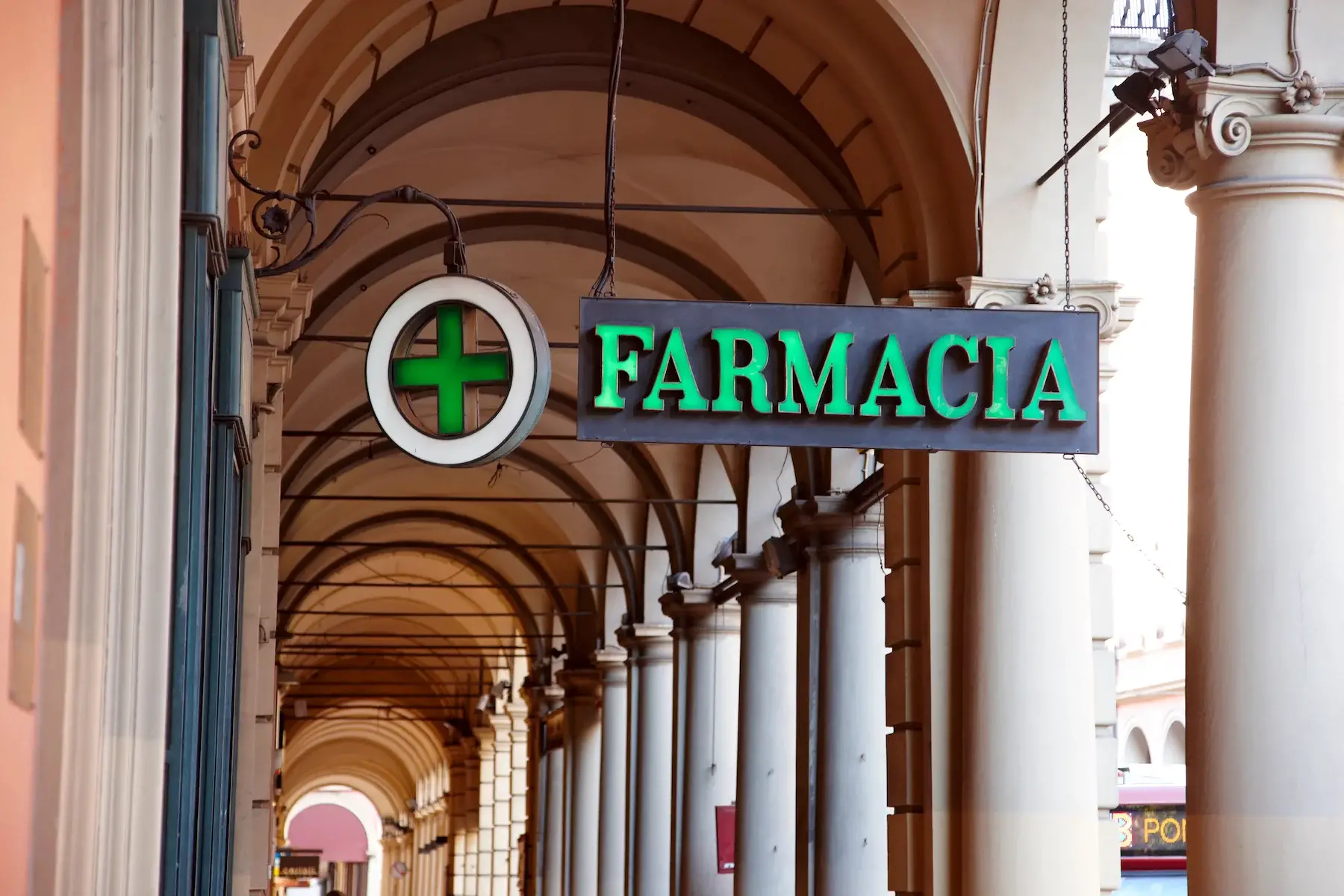
When you pick up prescription medication, you have to pay a small fee. Though, because medicines are heavily subsidized in Italy, you’ll never have to pay more than €10. Some residents are also exempt from health tickets, including children under 6 and low-income households.
Italian pharmacies typically open in the morning (09:00–12:30), close for lunch, and reopen again in the afternoon (15:30–19:30). If you are unable to go to the pharmacy due to disabilities or serious illnesses, you can call the national toll-free number 800 189 521 and get free home delivery.
Find more information about and search for services in your area on the website of your local ASL.
Specialized healthcare
Mental healthcare
Patients struggling with addiction or mental health issues can find treatment at a mental health center (centro di salute mentale – CSM). These centers have multi-professional teams with at least one psychiatrist, a psychologist, a social worker, and a professional nurse. For more serious problems, you may be referred to a day center, residential facility, psychiatric clinic, or hospital.
If you meet with a psychologist or psychiatrist in the private sector, you first need a referral from your GP. With private insurance, you can skip the line and go straight to the therapist yourself.
The International Therapist Directory lists numerous English-speaking psychologists and therapists in your area. Keep in mind, however, that many of these will only provide private services at additional costs.
Children’s healthcare
Children have access to free or low-cost public healthcare in Italy, including childhood vaccinations and dental care.
Minors up to the age of 14 are automatically covered by their parent’s or guardian’s health insurance. After that, their policies are tax-funded or require an annual registration fee.
When you sign up for public healthcare, you can register your child with a family doctor or pediatrician (pediatra).
Women’s healthcare
Public healthcare only covers essential healthcare services for women. For example, diagnostic services related to pregnancy, HIV testing, and some cancer screenings are free of charge. Other women’s healthcare, such as birth control and non-referral gynecological visits, require either copayment or payment in full.

The right to an abortion has been legal in Italy since 1978, allowing women to voluntarily terminate a pregnancy in the first 90 days. Cravenly, however, doctors may refuse to perform the treatment on moral grounds. In fact, in 2020, 64.6% of Italian gynecologists were conscientious objectors.
Women who want to exercise their legal rights can visit the non-profit organization Laiga’s website. It lists a map of abortion providers that perform both pharmacological and surgical terminations.
For more information on women’s healthcare, read our detailed articles on healthcare, having a baby, and sexual and reproductive health in Italy.
Healthcare for seniors and retirees
Italy is a relatively long-lived country. It boasts a life expectancy of 80.9 for men and 85 for women (2022), and around 24.3% of the Italian population is over 65 (2024).
The government promotes healthy aging and community-based solutions and home care. There is also a range of helplines for older adults, including a dedicated one in Milan for those affected by Alzheimer’s.
While the SSN covers most healthcare expenses, it is struggling to meet the needs of the growing number of seniors. As such, some older residents prefer to take out private medical insurance. For example, companies like Cigna Global even provide dedicated individual plans for pensioners.
You can learn more about growing older in Italy by reading our articles on healthcare for seniors or contacting your local circle for the elderly center (circolo per anzian). Italia Non Profit also lists organizations that work with older people in Italy.
Alternative medicine in Italy
Alternative and complementary healthcare services (servizi sanitari alternativi e complementari) are becoming increasingly more popular in Italy. Some hospitals and healthcare providers even recommend these holistic services as part of a comprehensive treatment plan.
The most popular treatments are acupuncture, chiropractic care, homeopathy, and osteopathy. Depending on your location and desired treatments, you can access services at hospitals, specialized health clinics, wellness centers, pharmacies, or health food stores.

Holistic medicines are generally not covered by the public healthcare system. However, some regions in Italy may offer provisions to cover certain holistic treatments. For example, Tuscany (Toscana) is known to provide coverage if the treatment is integrated into a care plan provided by a public healthcare professional.
You can check with your local ASL to see if or what complementary treatments they cover. If you want to forgo the hassle, you can also register for private health insurance to access any alternative cures.
Practical medical phrases in Italian
Some useful Italian phrases and vocabulary to learn are:
| English | Italian |
| Help! | Aiuto! |
| Call an ambulance! | Chiama un’ambulanza! |
| I’ve had an accident | Ho avuto un incidente |
| I feel like I’m dying | Mi sento come se stessi morendo |
| doctor’s office | studio medico |
| pain | dolore |
| headache | mal di testa |
| stomach ache | mal di stomaco |
| fever | febbre |
| cough | tosse |
| food poisoning | intossicazione alimentare |
| heart attack | infarto |
| prescription | prescrizione |
| vaccine | vaccino |
| x-ray | radiografia (raggi X) |
| CT scan | tomografia computerizzata (TAC) |
Useful resources
- Ministry of Health – government e-portal with information about healthcare in Italy, including FAQs
- Servizio Sanitario Nazionale – SSN e-portal with information about Italy’s public healthcare sector
- 2023 Italy health profile – European Commission review of Italy’s healthcare in 2023
